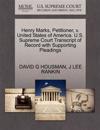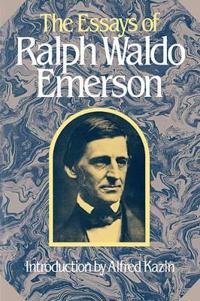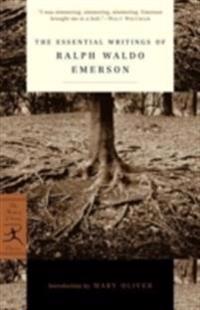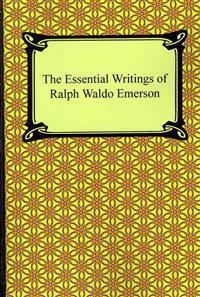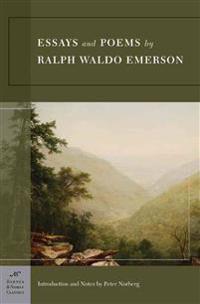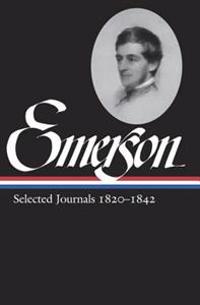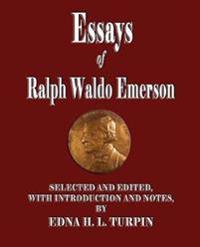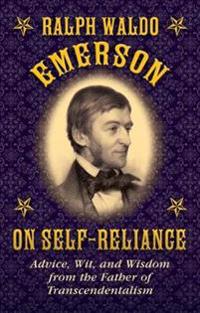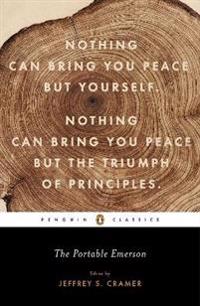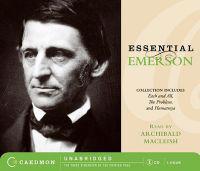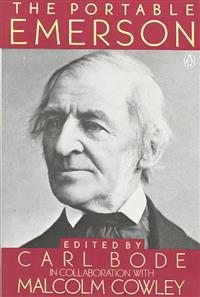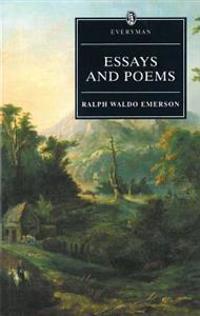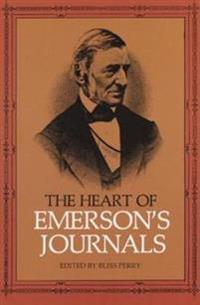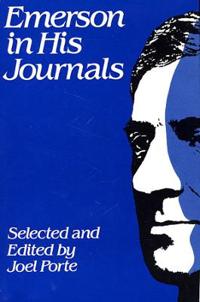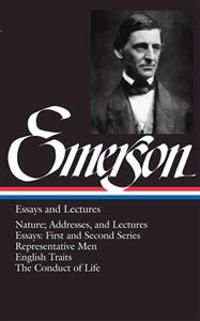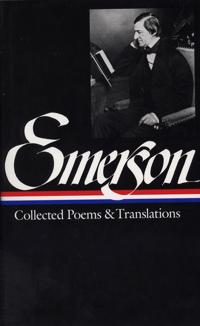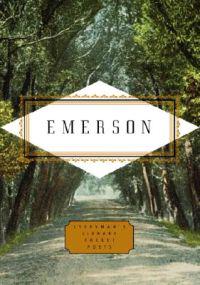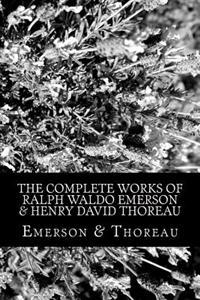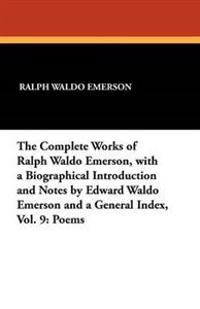Letters of Ralph Waldo Emerson, The: v. 7 (Övrig)
avRalph Waldo Emerson
ISBN: 9780231068703 - UTGIVEN: 1990-07-18Unlike some other reproductions of classic texts (1) We have not used OCR(Optical Character Recognition), as this leads to bad quality books with introduced typos. (2) In books where there are images such as portraits, maps, sketches etc We have endeavoured to keep the quality of these images, so th[...]
Selected Letters of Ralph Waldo Emerson, The (Pocket)
avRalph Waldo Emerson
ISBN: 9780231102810 - UTGIVEN: 1999-09-01Selected Letters of Ralph Waldo Emerson, The (Övrig)
avRalph Waldo Emerson
ISBN: 9780231102827 - UTGIVEN: 1997-12-16In 1939 Columbia University Press published the acclaimed first volume of The Letters of Ralph Waldo Emerson, which presented a deeply personal portrait of the real Emerson, previously unknown to the American public. Through these letters readers gained a new insight into the mind of this seminal f[...]
Selected Writings of Ralph Waldo Emerson (Häftad)
avRalph Waldo Emerson
ISBN: 9780451531865 - UTGIVEN: 2011-06The Essays of Ralph Waldo Emerson (Häftad)
avRalph Waldo Emerson
ISBN: 9780674267206 - UTGIVEN: 1987-07Emerson, Alfred Kazin observes in his Introduction, "was a great writer who turned the essay into a form all his own." His celebrated essays--the twelve published in "Essays: First Series" (1841) and eight in "Essays: Second Series" (1844)--are here presented for the first time in an authoritative o[...]
Selected Essays of Ralph Waldo Emerson (Häftad)
avRalph Waldo Emerson, Brooks Atkinson
ISBN: 9780679783220 - UTGIVEN: 200009The definitive collection of Emerson's major speeches, essays, and poetry, The Essential Writings of Ralph Waldo Emerson chronicles the life's work of a true "American Scholar."
As one of the architects of the transcendentalist movement, Emerson embraced a philosophy that championed the i[...]The Essential Writings of Ralph Waldo Emerson (Häftad)
avRalph Waldo Emerson
ISBN: 9781420946956 - UTGIVEN: 2013-01Self-Reliance & Other Essays by Ralph Waldo Emerson (Häftad)
avRalph Waldo Emerson
ISBN: 9781451508949 - UTGIVEN: 2009-01Nature by Ralph Waldo Emerson (Häftad)
avRalph Waldo Emerson
ISBN: 9781468114348 - UTGIVEN: 2012-05Essays and Poems by Ralph Waldo Emerson (Häftad)
avRalph Waldo Emerson
ISBN: 9781593080761 - UTGIVEN: 200403Ralph Waldo Emerson Selected Journals, 1820-1842 (Inbunden)
avRalph Waldo Emerson, Lawrence Rosenwald
ISBN: 9781598530674 - UTGIVEN: 201003When Emerson died in 1882 he was the most famous public intellectual in America. Yet his most remarkable literary creation-his journals- remained unpublished. Begun when he was a precocious Harvard junior of 16 and continued without significant lapse for almost 60 years, Emerson's journals were his [...]
Selected Essays of Ralph Waldo Emerson (Häftad)
avRalph Waldo Emerson
ISBN: 9781603862103 - UTGIVEN: 2009-05Ralph Waldo Emerson on Self-Reliance (Inbunden)
avRalph Waldo Emerson
ISBN: 9781628737943 - UTGIVEN: 2014-07Ralph Waldo Emerson was one of the great minds of the mid-nineteenth century. His thoughts and views led the Transcendentalist movement, and his writings--especially Self-Reliance--taught people to "trust thyself" and see how their self-worth was more important than anything else. Emerson on Self-R[...]
The Portable Emerson (Pocket)
avRalph Waldo Emerson, Jeffrey S. (EDT) Cramer, Ralph Waldo Emerson
ISBN: 9780143107460 - UTGIVEN: 2014-12Philosopher John Dewey called Ralph Waldo Emerson "the one citizen of the New World fit to have his name uttered in the same breath with that of Plato." Through his writing and his own personal philosophy, Emerson unburdened his young country of Europe's traditional sense of history and showed Ameri[...]
Essential Emerson (CD-bok)
avRalph Waldo Emerson
ISBN: 9780061663369 - UTGIVEN: 2008-09Although Emerson's poetry reveals that he regarded life as a tragedy, he also had a belief in humanity, a pride in human life which gave America a brief revival of the nobility of spirit in which it was founded. On this CD, Archibald MacLeish, a distinguished poet himself, reads many of Emerson's be[...]
The Portable Emerson: New Edition (Häftad)
avRalph Waldo Emerson, Malcolm Cowley, Carl Bode
ISBN: 9780140150940 - UTGIVEN: 198108This volume, edited by Carl Bode in collaboration with Malcolm Cowley, presents the essential Emerson, selected from works that eloquently express the philosophy of a worldly idealist. The Portable Emerson comprises essays, including "History," "Self-Reliance," "The Over-Soul," "Circles," and "The P[...]
Essays & Poems Emerson (Häftad)
avRalph Waldo Emerson
ISBN: 9780460876773 - UTGIVEN: 1995-03Nietzsche said that he never travelled anywhere without a volume of Emerson's essays in his pocket, while Mathew Arnold described Emerson as 'the greatest prose writer of the century'. It is a remarkable writer who could at once appeal to a man considered a pillar of Victorian society, and to a man [...]
The Heart of Emerson's Journals (Häftad)
avRalph Waldo Emerson
ISBN: 9780486285085 - UTGIVEN: 199505Carefully selected passages from 55 years of journal entries: thoughts, religious sentiments, impressions of books, authors, contemporaries, much more. Splendid, revealing record of Emerson's personal beliefs, as well as a social and historical record of his age. "Beyond all doubt this . . . volume [...]
Emerson in His Journals (Häftad)
avRalph Waldo Emerson
ISBN: 9780674248625 - UTGIVEN: 198407This long-awaited volume offers the general reader the heart of Emerson's journals, that extraordinary series of diaries and notebooks in which he poured out his thoughts for more than fifty years, beginning with the "luckless ragamuffin ideas" of his college days. Emerson as revealed in his journa[...]
Emerson Essays and Lectures: Nature; Addresses, and Lectures/Essays: First and Second Series/Representative Men/English Traits/The Conduct of Life (Inbunden)
avRalph Waldo Emerson
ISBN: 9780940450158 - UTGIVEN: 198311Gathers Emerson's writings about nature, beauty, language, idealism, history, love, friendship, art, and men[...]
Emerson: Collected Poems and Translations (Inbunden)
avRalph Waldo Emerson, Paul Kane, Harold Bloom
ISBN: 9780940450288 - UTGIVEN: 1994-08Emerson: Poems (Inbunden)
avRalph Waldo Emerson, Peter Washington
ISBN: 9781400043163 - UTGIVEN: 2004-09Ralph Waldo Emerson is one of the best-loved figures in nineteenth-century American literature. Though he earned his central place in our culture as an essayist and philosopher, since his death his reputation as a poet has grown as well.
Known for challenging traditional thought and for his fait[...]The Complete Works of Ralph Waldo Emerson & Henry David Thoreau (Häftad)
avHenry David Thoreau, Emerson, Thoreau
ISBN: 9781453610596 - UTGIVEN: 200801The Complete Works of Ralph Waldo Emerson, with a Biographical Introduction and Notes by Edward Waldo Emerson and a General Index, Vol. 9 (häftad)
ISBN: 9781434421548 - UTGIVEN: 2010-06The Annotated Emerson (Inbunden)
avEmerson, Ralph Waldo
ISBN: 9780674049239 - UTGIVEN: 2012-02-03A brilliant essayist and a master of the aphorism ("Our moods do not believe in each other"; "Money often costs too much"), Emerson has inspired countless writers. He challenged Americans to shut their ears against Europe's "courtly muses" and to forge a new, distinctly American cultural identity. B[...]



